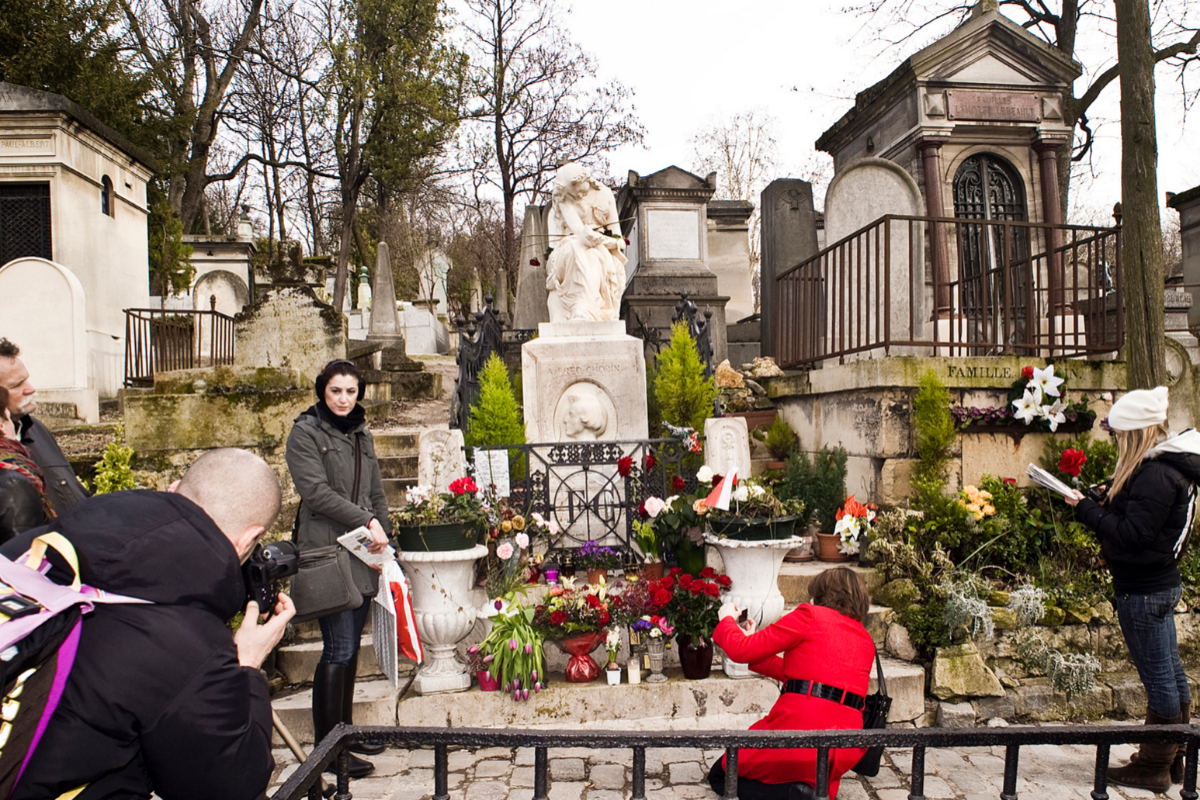Culture: An unpublished photograph of Frédéric Chopin is discovered
Moritz Weber, a journalist with the Swiss SRF, did not imagine that a radio documentary could generate such a stir in Poland, where the debate around
Chopin's homosexuality
has once again made headlines in the newspapers and divided public opinion into irreconcilable The distance that separates the composer's body, buried in the
Parisian Père-Lachaise cemetery,
and his heart, guarded in a church in Warsaw.
Weber's documentary, titled
Chopin's Men
and aired in mid-November, deals with both issues - carnal desire and passion for love - based on a French edition of his correspondence published in the 1950s.
"I began to read the volume during confinement without imagining that it could engulf its 1,200 pages," the music critic and pianist told LOC.
"There was something fishy about the insistence of the footnotes in
attributing to Chopin romances with women
that were never confirmed."
The
excusatio non petita
of the flowery notes encouraged him to submit the originals to the judgment of some Polish-speaking colleagues.
"They quickly detected
translation errors
, such as changes in male pronouns for female pronouns."
For decades,
Chopin's displays of affection for his friend and mentor Titus Woyciechowski
have gone almost unnoticed by musicological scrutiny.
"They were said to be mere idioms, pure romantic exacerbation."
Wagner himself incurred in excesses of cordiality with his "beloved" patron Louis II of Bavaria.
"That context should not be discarded, although Chopin goes beyond any epistolary formalism when he writes to Titus: 'I only love you.'
In other passages, he deliberately engages in a kind of LGBTQ activism
avant la lettre
: "People often write at the end of letters 'I hug you from the heart', without knowing what they are writing," he warns Titus.
"But believe me: I know what I have written because I love you."
For his research, Weber has looked at both what Chopin says and the telltale absences of his writings.
"In this regard, the
extremely rare correspondence with George Sand is striking
."
The urn with Chopin's heart, in Warsaw.AP
When they met in 1836, Chopin was "horrified" by the excessively transgressive and
dandy image
of Sand (pseudonym Amantine-Aurore-Lucile Dupi), who in his autobiography describes his companion in the cold nights of the Carthusian monastery of Valldemosa in the terms of a "guest" who inspires a chaste and maternal love.
"One might wonder if Chopin was bisexual, like Sand,
but in his letters we find no trace of eroticism towards women."
Not even in the correspondence, probably fraudulent, that he had with
Costanza Gadkowska and Maria Wodziska
.
"Nothing comparable to the avalanche of love confessions that he pours on Titus and at least four other men, with some of whom he shared a flat in Paris."
He refers to the doctor and amateur flute player
Jan Matuszyski
("he is everything to me", he writes about Chopin), the pianist and copyist
Julian Fontana
, the soldier
Antoni Wodziski
("believe me, I think of you as I think of Titus", the composer to one of his compliments) and diplomat and banker
Wojciech Albert Grzymaa,
who repeatedly complains about Sand's bad influence, it is unclear whether because of his genius or his gender.
In
A Life and Times
, the most complete biography of Chopin written by the musicologist Alan Walker,
the subject of the composer's homosexual flirtations is addressed,
but only to the extent that these specific episodes served as inspiration through liberating experiences.
Weber's exegesis refutes this theory in the relevance of the data and the opportunism of identity politics.
"Chopin's homosexuality is only relevant insofar as it allows us to deepen his personality and get to know his music better."
Weber refers to the stereotype (between weak and sickly) that distanced the composer from the
Beethovenian romantic ideal
.
"The rereading of his letters gives him back a certain dignity and sheds a new light on his works."
Thus, for example, we can listen to the dramatic recitative of
Concerto No. 2
as a declaration of love to Titus, to whom he writes at the end of the score: "I tell the piano what I would say to you."
Not to mention the
political dimension
that the statues of Chopin wrapped in a rainbow flag could acquire in a country with
one hundred municipalities that are self-proclaimed zones free of LGBTQ ideology.
Chopin's grave, in the Parisian cemetery of Père-Lachaise.GIULIA PANATTONI
From the
Fryderyk Chopin Institute in Warsaw,
they thank Weber for his efforts to spread the legacy of the great cultural standard of Poland while rejecting his hypothesis.
· "You have discovered something that all second-year musicology students in Poland already know."
For his part, Weber prepares the version in other languages of his documentary, where he recreates the most revealing excerpts from the letters: some moving, others tragic or loaded with eroticism, there are also sordid ones, with London urinals as a backdrop.
"The
new translations of the letters were removed from Wikipedia
in a matter of minutes," laments the 44-year-old journalist.
"Then I understood that I should not stop spreading its content."
According to the criteria of The Trust Project
Know more
LOC
RealityThe most real confession of Pilar Rubio about motherhood: "Sometimes I'm overwhelmed"
45 years anniversary of Iron Maiden: long hair, drugs, satanic rites and 'heavy metal'
InterviewAnabel Pantoja, on the war between Kiko and Isabel: "I hope it's temporary"
See links of interest
Last minute
TV programming
Spanish translator
Holidays 2021
Holidays 2020
Movies Today
Topics
Coronavirus today
Spain - Czech Republic, live
Tenerife - Leganés
TSG Hoffenheim - FC Augsburg
Fiorentina - Genoa
Eibar - Valencia CF

